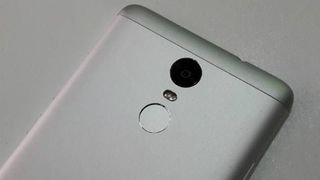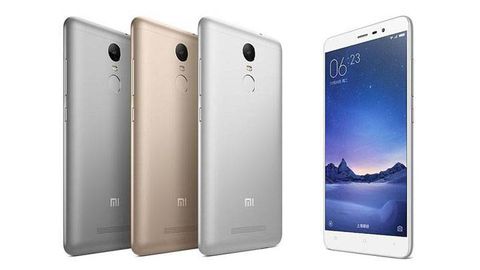TechRadar Verdict
Xiaomi Redmi Note 3 is an excellent value for money that has a great looking smartphone that does not let you down.
Pros
- +
Great looking phone with sturdy build
- +
Battery that lasts
- +
Butter smooth performance
Cons
- -
Hybrid SIM
- -
No quick charge support
- -
Low light camera shots are underwhelming
Why you can trust TechRadar
Xiaomi had managed to create ripples in the Indian smartphone market with its sub Rs 10,000 phones such as Redmi Note, Redmi Note 4G, Redmi Note Prime. Even the slightly more expensive phone Xiaomi Mi4i was lapped up by Indian consumers with open arms. One would have thought that it will be very difficult to put brakes on Xiaomi growth phenomena post this phase. But that was not how the next part of the story unfolded.
For another year Xiaomi had absolutely no new phones to offer to the Indian consumers. Parallelly the success of Xiaomi led newer players such as Meizu, Coolpad and LeEco to make a beeline for India. Both of this combined managed to rub off some of the impact that the company had managed to create in the past.
Xiaomi on its part claims that they post the warm welcome they wanted to come out with something that was worth the hype. Sure there was an added pressure on Xiaomi to bring out phones that will help them go further ahead in the race. Redmi Note 3 as per them is the star product that it believes will take the company to the next level. They also claim that they have put in a lot of efforts in making sure that is their the next "IT" device. We have been playing around with this phone for over a month now and here is what we feel about the same.
Specifications
Display: 5.5-inch Full HD (1920x100) display
OS : Android 5.1.1 Lollipop with MIUI 7
CPU : Qualcomm Snapdragon 650 SoC, 2GB/3GB RAM
Storage : 16GB/32GB storage, microSD card support by up to 128GB
Cameras : 16MP f/2.0 rear camera (dual-tone LED flash), 5MP front camera
Connectivity : Wi-Fi, 3G/4G/2G, GPS, Bluetooth
Battery : 4,050mAh
Price : Rs 9,999 (16GB +2GB ROM) Rs 11,999 (32GB+3GB)

Hardware
Redmi Note 3 features a 5.5-inch Full HD (1920x1080) display and is backed by a six-core Snapdragon 650 processor, unlike the China model that comes with a MediaTek SoC. The smartphone will be available in two variants- one with 16GB internal memory paired with 2GB of RAM and a 4,000mAh battery unit. The second variant comes packed with 32GB internal memory paired with 3GB of RAM and a slightly larger 4,050mAh battery unit. Both the variants support Quick Charge technology.
In terms of imaging, the rear has a 16MP camera and the front is equipped with a 5MP sensor for selfies. The Redmi Note 3 is Xiaomi's first ever handset to pack a fingerprint scanner, which is placed right below the camera sensor and the dual LED flash. You can store up to 5 fingers in this phone and as per Xiaomi, it unlocks the phone in just 0.3 seconds.
The handset is 4G enabled (and it supports all four LTE brands) and comes with dual-SIM support, one micro and one nano. The hybrid SIM card tray can also be used to expand the memory by up to 128GB via microSD card.
Key features
The Coolpad Note 3 changed the dynamics of the sub Rs 10,000 phones by offering a fingerprint authentication in that category. Now we have plenty of phones that offer the same and Xiaomi Redmi Note 3 is also one of them. The fingerprint scanner is at the back and it is very responsive and quick.
At the launch event, Hugo Barra had also demonstrated unlocking his phone via his lip mark, which we still maintain was gross and yes we did not really check if that works equally well for us. However, if that idea suits you, then you can set up your lips as your authentication and let us know how that experiences goes for you.
The phone promises ample storage as it comes with a microSD slot, but if you plan to use the same you will have to sacrifice the other SIM slot. Xiaomi Redmi Note 3 does support LTE on both the SIM and other connectivity options are Wi-Fi 802.11n, Bluetooth 4.1, and even an IR blaster.

We used the IR blaster to connect to a Samsung TV, Airtel Digital TV box and Voltas AC and did not face any hurdle doing the same.
Moving on to the display, Xiaomi Redmi Note 3 comes with 1,920x1,080 pixels resolution that offers 401 ppi. There is no word on the display protection on the Xiaomi Redmi Note 3 but it does not have the tendency to pick up scratches or even awkward smudges.
Sunlight display can be a bummer. There is a sunlight mode that does help things a bit but not completely do away with the problem.
There is also a read mode that much like the Night shift mode helps in reducing the strain on the eyes. I think it is a great addition and completely loved it.
Performance
Xiaomi Redmi Note 3 is powered by Snapdragon 650, which is a hexa-core processor with two Cortex A72 cores and four Cortex A53 cores. Giving it company is Adreno 510 GPU and 3GB of RAM. All this combined made sure that the phone delivers a butter smooth performance. Also there were no heating issues to report about this smartphone.
On the software front, Xiaomi Redmi Note 3 runs on MIUI 7 baked on the Android 5.1.1 Lollipop. There is a promise of the M coming to the phone soon. However, the company tries its best to help you not miss it much by offering some key features via its own UI.
Given the amount of Xiaomi phones that we have used in the past, MiUi 7 feels familiar. There are a few things that we like in it like it offers the option to disable autostart for select apps. There is a smart messaging app that automatically groups notification SMS together and highlights OTP codes. There is a light mode, child mode, and a one-handed mode, that you can opt for if you want to use them. Also UI allows you to move and uninstall apps in batches if you desire to do so.
Not to forget there are a plethora of themes available that help you customise the phone your way from the moment you power it on. We did not face any issues getting around with the UI and thankfully it does not pre-loaded with junk apps. There might be a few that you can definitely live without but nothing cringe-worthy here.

Camera
Xiaomi has equipped the Redmi Note 3 with a 16MP CMOS sensor that offers an aperture of F2.0. The sensor can record 1080p videos with the stock camera app and can even shoot 4k videos with the help of third party applications. The rear shooter is paired up with a dual-tone LED flash.
The camera interface of the Redmi Note 3 is like most of the previous Xiaomi devices, which utlises swipes to display the various modes, settings and other controls. A swipe to right will give you a number of filters and a left swipe shows the various modes such as Fish eye, Beautify, Tilt shift, Timer and others. You also get a manual mode, which allows you to tweak ISO and white balance. Besides, you can shoot time-lapse and slow motion videos and even 4K videos via the third party applications.
Talking about the performance of the 13MP rear sensor, it is quick to lock the subject and does not lag while taking a shot. However, we noticed that the images captured by the Redmi Note 3 are on a warmer side and looks more saturated when compared with the pictures taken from Lenovo K5 Plus and Coolpad Note 3, which also sells in the same price-bracket. We have compared the camera performance of the three smartphones that you can check here. The low-light performance is also decent. The images are less noisy when compared with other smartphones of same price-point. The smartphone will also please consumers who love to take selfies as the 5MP front camera is capable to deliver some amazing selfie shots.
Overall, Xiaomi has managed to deliver a budget smartphone with good imaging capabilities. The smartphone captures bright images with vibrant colours and good detailing.
Battery life
For me the most crucial part about the budget phone is the battery. Sure people want a sleek device that click decent selfies but at the end of the day you want a smartphone that can last you all day long. Thankfully, Xiaomi Redmi Note 3 passes that test with flying colours.
We had a 3GB RAM variant of Xiaomi Redmi Note 3, which packs in a massive 4,050mAh battery and despite the same it does not feel bulky. We have been using the phone for over a month now and would like to admit that at first I was surprised with the amount of juice I could get from the phone. We almost certainly manage to easily last a full day without looking for a charger. And a typical day for me is couple of hours of calling, almost 5-6 hours of screen time with frequent whatsapp, Facebook and multiple Twitter account notifications. Also I always had the brightness mode to maximum with 4G, Wi-Fi, Bluetooth and GPS consistently switched on.
The phone requires uses a micro USB charger and not the type C one and the only disappointment in the battery front is that it supports Quick Charge 1.0 and not the current standard.
Verdict
Xiaomi Redmi Note 3 is a great value for money phone. It has a great design and build quality, decent performance and an awesome battery life. However, we do think that the company could have enhanced its merits by offering a Quick charge 2.0. Also getting on to Android M brigade will help the smartphone get more acceptance given that Android N is also in the air if not being pushed over the air.
While Xiaomi Redmi Note 3 offers a decent camera but it fails to take decent shots under low lights. Also there is no 4K support. Overall, there is not much to dislike in the phone and it is a good value for money purchase.
Surbhi Chawla is the Editor In Chief at Mumbai Live. She is an experienced Marketing Communications Specialist with a demonstrated history of working in the technology and entertainment industry. Skilled in Crisis Management, brand promotion, Influencer Marketing, content writing, editing and Media Relations.


